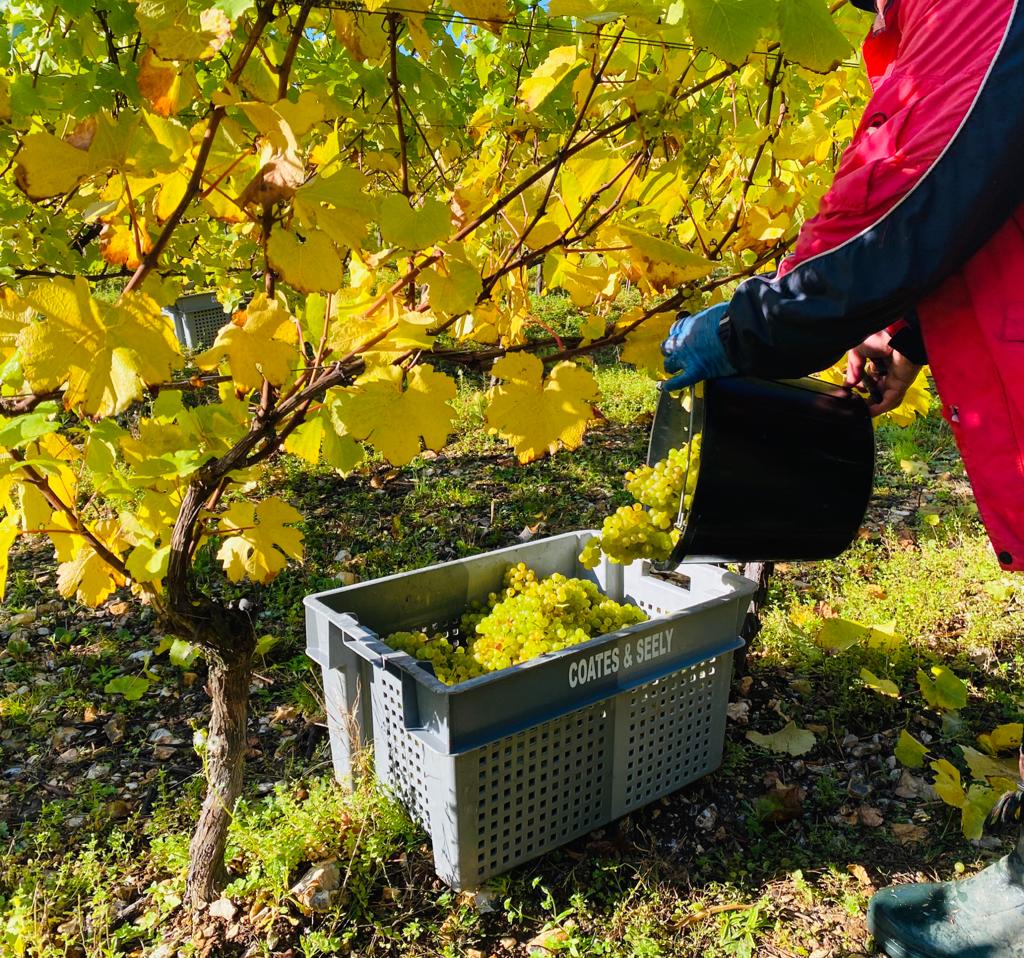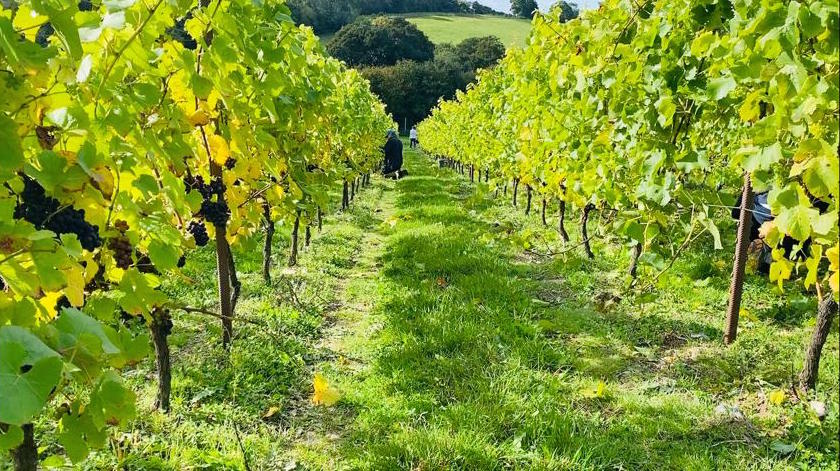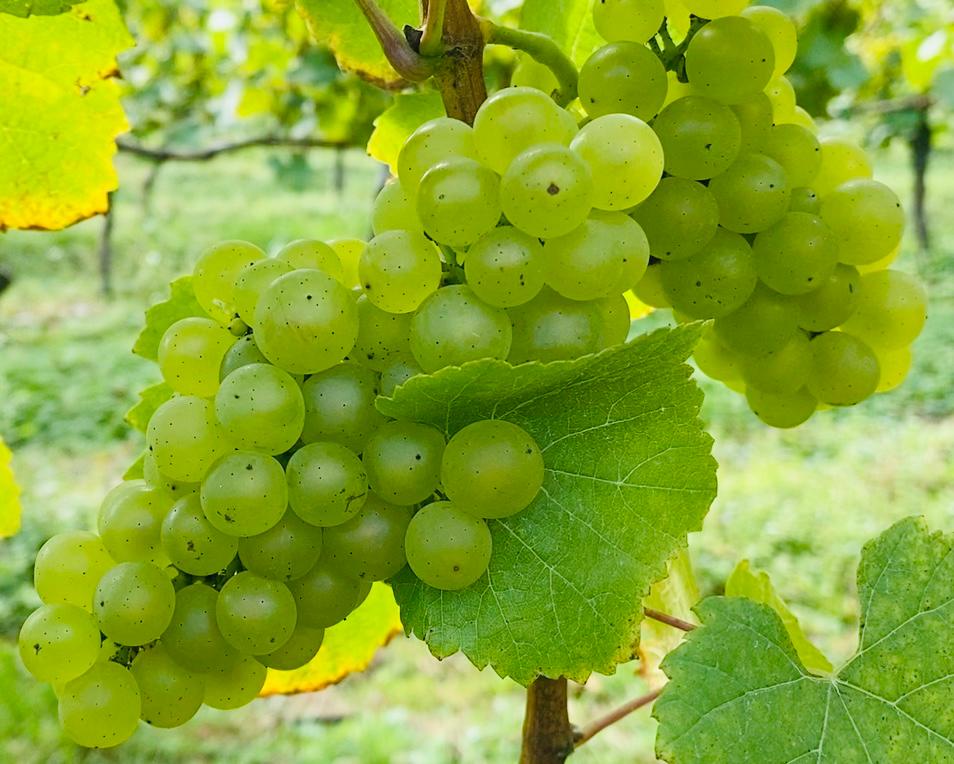A Vineyard Diary Part 12
Early October
Vineyards and Coronavirus
The story so far: after late spring frosts, record levels of rainfall and a resurgent pandemic, how will the harvest be affected?

The harvest is finally in.
Neither the coldest late-spring frost in decades (Diary Entry 4), nor the wettest day ever recorded in the UK (October 2, mid-harvest) – nor even a global pandemic – have managed to affect the quality of the fruit.
The harvest this year might be very small, but it’s undeniably beautiful.
A vintage year, despite it all…
This afternoon, with all the fruit now picked, I stood on the hill overlooking the vineyards.
They lie in the quiet, wooded hills between the clear chalk stream of the River Test that flows along the valley floor to the south and the high chalk ridge of Watership Down to the north, in a secluded v-shaped valley.
They are a winemaker’s dream, where chalk soils and clay caps disgorge rugged flints that help retain the heat of the sun, warming the top-soils; whilst in the late summer and early autumn the enclosed valley helps trap the last of the season’s heat to ripen the grapes.

The fruit that then emerges contains the perfect balance of crisp acidity and sweetness, as well as the saline minerality, that lie at the heart of all great sparkling wine.
There is a genius in these English chalk soils that produces Champagne varietals – Chardonnay and Pinot Noir – of great quality, which even pandemics and late-spring frosts can’t affect.
People still express surprise when I say this, but why shouldn’t it be so?
It was as recently as 1830 that a Mr Cox, from Buckinghamshire, planted an English apple tree called an Orange Pippin. It was an experiment. Today, Cox’s Orange Pippin – with its razor-crisp flesh, beguiling sugars and thrilling acidity – is an apple unsurpassed anywhere in the world!
And so it is proving with English, chalk-grown grapes for sparkling wine. Just look at where the Champenois are now beginning to plant.

As I turn my back to the vineyards to head home, my phone pings.
Trade talks with the EU have been abandoned.
I feel a sadness, after all we have been through together, that we can’t even agree our trading arrangements.
After all, ten thousand years ago you could still have walked – just – from where I am standing, overlooking the vineyards, all the way to the region of Champagne, before the ice-melt of the last glacial period finally severed the last remaining land connection to the rest of the European continent, setting us off on our long island story.
Geologically speaking we are at least first cousins.
We share, too, the same long hinterland of triumphs and endeavour and sacrifice, same side or not.
So whatever the final outcome, we shall continue to work with our continental friends, to learn from their craftsmanship, to enjoy our differences and to sell them our wines.
It will take more than politics to prevent that.
As it takes more than frost, or a pandemic, to degrade our wines.